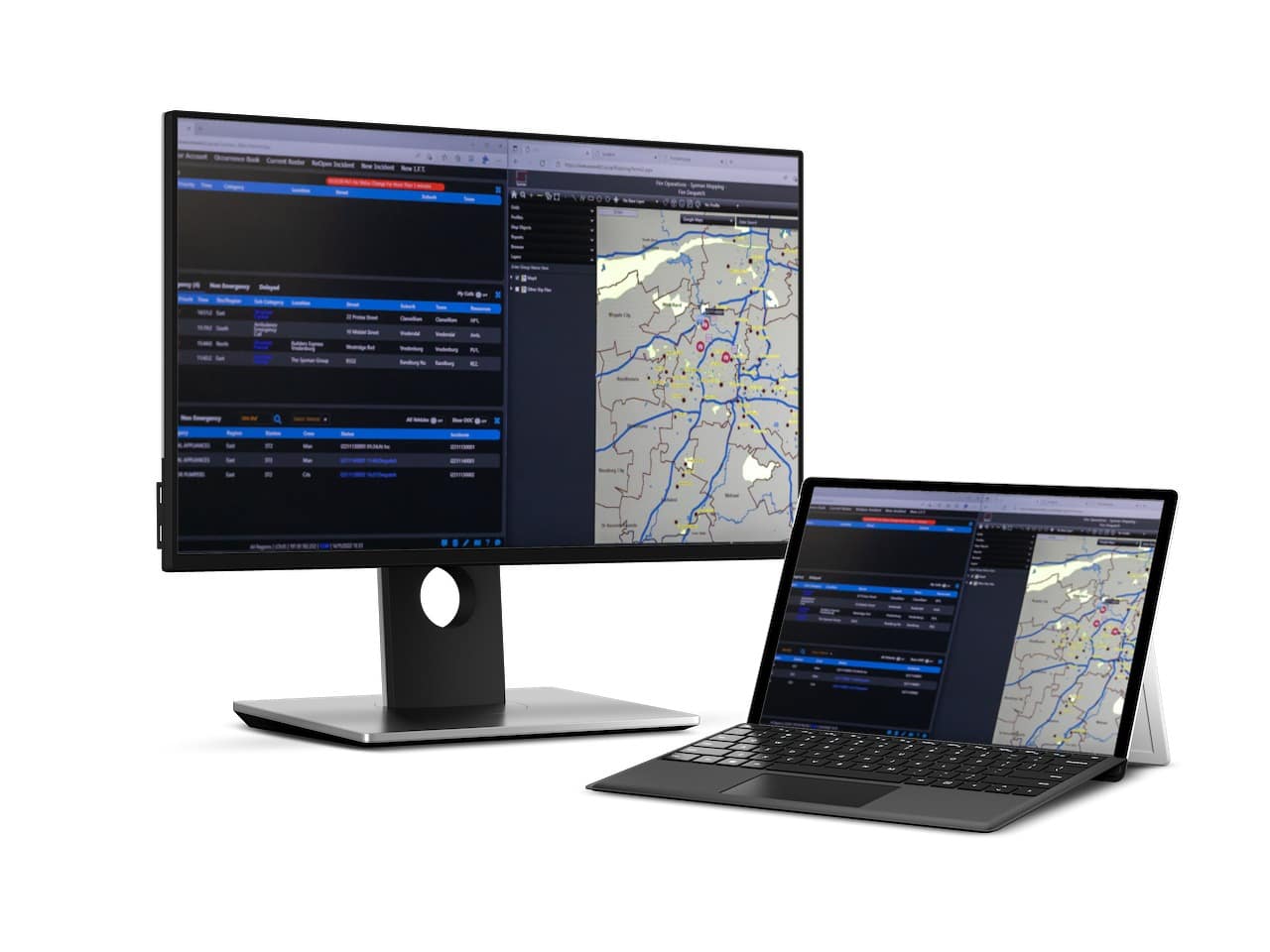ESS Web2 is a comprehensive system designed to support emergency services operations and enhance efficiency and effectiveness.
Key features of ESS Web2 include:
Call Taking: Options for split call taking/dispatch or dedicated call taking, with a user-friendly interface and multiple methods for capturing addresses.
Mapping: Fully integrated mapping within the call taking process, with zooming, panning, incident display, vehicle tracking integration, and directions to incidents and points of interest.
Duty Rosters: Pre-planning and management of duty rosters, allowing for temporary assignments and allocation of crew to vehicles.
Vehicle Tracking: Real-time tracking of vehicles on the map, integration with vehicle systems, and communication of dispatch information and status updates to equipped vehicles.
Occurrence Book: Comprehensive recording of user logon/logoff, call capture, and incident dispatching, including manual updates for personnel and vehicle-specific entries.
Fire Safety: Features for fire safety operations, including an inspection scheduler, document control, locations database, reports, checklists, scheduling, inspections, and certificate issuing for Major Hazardous Installations (MIH).
CRM-Lite: Lightweight Customer Relationship Management (CRM) module for logging service complaints and automatic transmission to service departments.
Privileges: User privilege assignment for control over access to various ESS functions.
Reporting: Comprehensive reporting capabilities with statistics on call logging times, response times, incident duration, and operator performance, allowing for customized reports.
Help System: A comprehensive help system for user assistance.
Communications API: Web API for communication with ESS and third-party systems.
Resource Management: Efficient management of personnel, vehicles, and equipment, including assignment, availability tracking, and utilization optimization.
Remote Dispatch Console (RDC): Support for real-time communication and data exchange between dispatchers and field personnel, including incident details, navigation instructions, and updates.
Integrated Messaging: Secure and efficient communication between dispatchers, field personnel, and stakeholders, ensuring reliable and timely information sharing during emergency operations.
Integrated CAD (Computer-Aided Dispatch): CAD functionality for incident management, including incident prioritization, automated dispatching, status tracking, and real-time updates.
Multi-Agency Collaboration: Seamless collaboration among multiple emergency service agencies, enabling sharing of incident information, resources, and communication channels for enhanced coordination and joint operations.
Integration with External Systems: Integration capabilities with external databases, third-party applications, and emergency services networks to ensure data consistency, information exchange, and interoperability.
Training and Simulation: Features for simulating emergency scenarios and conducting training exercises to assess preparedness, test response strategies, and improve operational readiness.
Audit Trail and Logging: Comprehensive audit trail and logging system for data integrity, accountability, traceability, performance evaluation, and regulatory compliance.
Customization and Configurability: Customization and configurability options to adapt the system to specific operational requirements and workflows, including custom fields, workflows, and reporting formats.
ESS Web2 serves as a versatile and feature-rich platform, empowering emergency service agencies with advanced tools for call taking, resource management, mapping, fire safety, and mobile communication. It aims to enhance operational capabilities, optimize response times, and ensure effective emergency service delivery.






FEATURES
Features
COMPARE PACKAGE FEATURES
Separate Call Taking & Dispatch
Call Taking & Resource Management
Integrated Maps
Bulletins
Chat Facility
Hazchem Database
Roster Archiving
Fire Safety
Checklists
Occurrence Book
SMS/Paging
Procedures
Google Address Search
MapIT Address Search
Other Services
Incident Data Capture
User Defined Databases
Documents